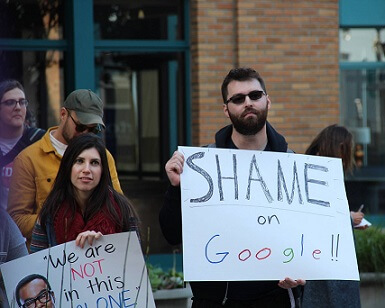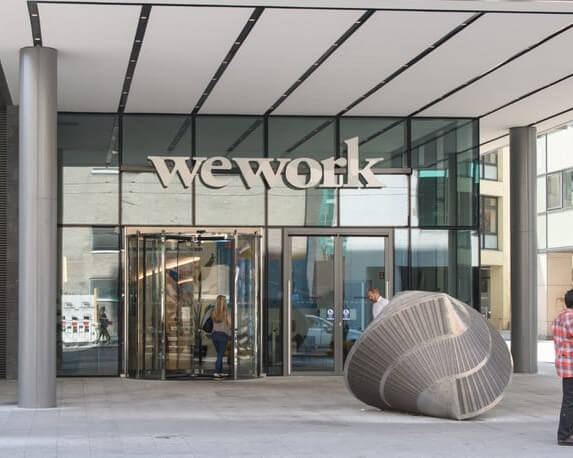
Older IT workers are being passed over by employers even as IT job openings are soaring. Workers aged 22 to 44 account for 61% of the workforce in the IT sector, but only 49% of the workforce across all occupations. Further, workers aged 45 and above represent 38% of all IT employees in the U.S companies, in contrast with 44% in other sectors.

A national survey by Cancer and Careers says 88% of workers are concerned about their ability to support co-workers grappling with health issues. 69% of respondents are unaware of the kind of emotional support to offer and how much to offer, and 59% of respondents want to know the ways they ask their co-workers about their medical condition, as chronic illnesses can be a sensitive topic in a workplace.

Nearly 3,200 workers at Canadian National, the country’s largest rail operator, went on a strike on 19 November to protest against chronic overwork and unsafe conditions. “Nobody likes being on strike, but we’ve been bargaining here for seven months. Our back is against the wall.” Christopher Monette, a representative at Teamsters Canada, says. The talk between union workers and management is continuing without progress, reports the Guardian.

KPMG International survey says HR function will become irrelevant if it doesn’t modernize its approach to workforce planning. HR departments aka pathfinding organizations that shape the workforce of the future, create strong employee culture, and generate insights from data will thrive in the future, HR Dive reports. Pathfinding organizations are more likely to have a dedicated HR role focused on culture and purpose.

Diversity at workplaces and the increasing number of millennials in leadership roles are changing the way employees work, Fortune says. Employees are less tied to their desks than in the past. According to a study by Upwork, the number of freelance workers in the United States has increased by 4 million, making up 35 percent of the U.S. job market.

Around 200 Google workers gathered outside the company’s San Francisco office to protest the company’s decision to place two employees on administrative leave and increased restrictions on access to information. Protesters denounced a range of actions by the tech giant, describing them as intimidation tactics and efforts to suppress an open culture. Reportedly, the company has hired an anti-union consulting firm.

WeWork, following its failed initial public offering (IPO) attempt, said it will lay off nearly 20% of its workforce, Reuters reports. “As part of our renewed focus on the core WeWork business, and as we have previously shared with employees, the company is making necessary layoffs to create a more efficient organization,” a company spokeswoman said in a statement. However, the employees will receive severance and continued benefits during this critical period of career transition, the report said.

Interviewers pay less attention to facial imperfections when the interviewees acknowledge them upfront, a study from Rice’s University and the University of Houston’s Hilton College says. Facial features affect the interview process amidst strict laws that preclude it. As a resolution, researchers at Penn State University and Columbia University have unveiled an Artificial Intelligence (AI) tool to detect discrimination based on legally protected classifications, HR Dive Reports.

On Friday, November 22, Google employees are planning a rally in San Francisco demanding an end to the escalating pattern of intimidation. The organizers of Friday’s rally portray the administrative leave of two workers as a brute force intimidation attempt and call for the reinstatement of their colleagues, Forbes Reports.

Employees who change jobs internally stay longer on board, data from LinkedIn shows. Further, employees who are promoted after spending 3 years on staff have a 70% chance of staying on board, while those who made a lateral move have a 62% chance of staying. Those who remain in their position have a 45% chance of staying on board.

42% of American employees have been involved in political talks at work, Fortune says. Though it is expected of workers to leave political talks at the door when they come to work, the reality is far from expectation. 56% of workers think political talks have been increasing at work and becoming more polarizing, a survey from the Society of human resources management says.

Most employers lack satisfactory employee onboarding, suggests Accountemps. A poll conducted by Accountemps found that most employees rated their employers' onboarding efforts as somewhat effective. Another research from Service Now found 80% of employees say onboarding is an important event at work. Micheal Steinitz says, “it is important for companies to make a first good impression”.

In a Deloitte survey, 85% of global employees said they would prefer to be recognized for day-to-day accomplishments. Employers are acting on the finding. World at Work and Maritz Motivation found that the number of employers with deeply-embedded recognition programs increased from 10% in 2015 to 17% in 2019. Eventbrite taps into employees’ passion for self-organizing events by encouraging small celebrations to engage employees.

Re-joining the workforce is a challenge for people who are on a career break. Keeping this mind, Johnson& Johnson launched the Re-ignite program in 2017. Reportedly, 43 % of mothers in STEM careers leave their jobs to raise their first child. Contrarily, 23% of fathers leave. The Re-ignite program boasts a 100% returnee-to-employee conversion rate. The program welcomes anyone who has had a career break.

According to Hanold Associates, a recruiting firm, employers are increasingly realizing the correlation between talent and company performance and therefore are seeking high-caliber business leaders for HR roles. This makes CHROs a potential candidate for CEO positions. CEOs are increasingly seeking HR’s input. CHROs are fighting less for the table now and are serving as a strategic partner, HR Dive reports.

Tata group’s European chief executive Henrik Adam said the company is planning to cut about 3000 jobs across its European business. According to the statement released by Tata, the company is seeking to improve performance by increasing sales of higher value products, efficiency gains and reducing employment costs by cutting employee numbers. The statement also revealed that about two-thirds of the job losses are expected to be office-based roles. There will no plant closure.

Employers can address the economic inequality of their workforce by accommodating and encouraging a more remote workforce. “Job growth in places like the U.S is often driven by a small number of cities, creating big incentives for workers to move there. That, in turn, ratchets up the cost of living, exacerbating inequality in those hot spots” says Kevin Sneader, McKinsey managing partner.

Whirlpool Cooperation remains positive about the self-growth and its workers, amid huge digital skill gaps. The company with its unique ‘zero-based policy’ has found the perfect balance of tech and process to keep its workforce steps ahead of digitization. The Whirlpool Corporation fosters people-centric culture, says Deboleena Bose, vice president of human resources. The company is evolving with industrial technology changes.

American graduates accumulate around $35,359 in student debt says Experian. The increasing costs of student loans create high emotional and financial stress that negatively impacts employees' professional and personal life. About 80% of workers are stressed about finances and 78% live paycheck to paycheck, Forbes reports. To curb this and improve employee financial flexibility and wellness, Ceridian announced Dayforce Wallet.

A rule that allows healthcare workers to receive funds to refuse to perform healthcare services including abortion, sterilization and assisted suicide is overturned by a federal judge. Paul A. Engelmayer, the Judge, concludes HHS lacked rulemaking authority. The rule was set to take effect on Nov.22. The rule’s promulgation was “arbitrary and capricious”, the court said.
This website uses cookies to enhance website functionalities and improve your online experience. By browsing this website, you agree to the use of cookies as outlined in our privacy policy .